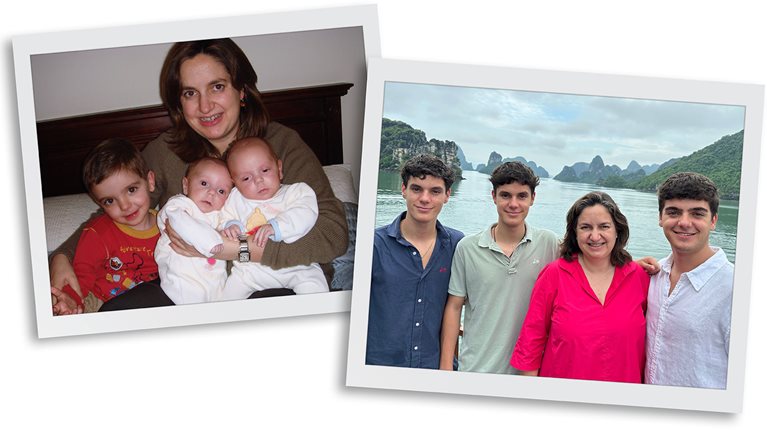María del Mar Martinez, chief diversity, equity, and inclusion officer at McKinsey, had three children during her time at the firm, the first as an associate partner and the second and third as partner. While they were joyous times in her life, they also raised professional challenges.
“Those years were some of my toughest at the firm,” says María. “Re-engaging was always somewhat of a shock.”
María helped lead an effort at the firm to support new parents, and others taking more than 12 weeks of leave, aimed at reducing attrition rates and improving their overall experience at work. The reboarding program launched in 2019 in Europe as a two-year pilot and reduced attrition by 20 percent, drawing over 1,100 participants. In 2023, the program expanded to all McKinsey offices.
With this program, María sees a paradigm shift at the firm from her early motherhood days.
“McKinsey is a place for having kids and a successful career. Our reboarding program brings parents back from leave into a supportive, thriving environment,” she says.
The program was recently recognized by the World Economic Forum as a diversity, equity and inclusion 'Lighthouse' in 2023, part of a broader effort to recognize companies’ DEI initiatives that McKinsey helped launch in 2022.
Germany-based McKinsey associate partner Kristina Müller recently used the program and shares her experience with its five components.

McKinsey is a place for having kids and a successful career.
A customized reintegration plan
Kristina: I was on leave for 10 months after having my first child, Lukas. I was uneasy about being gone for that long and what I’d face when I returned. But this changed when the firm helped me form a plan for reboarding before I went on leave. I determined I wanted to return part time at 70 percent, and I connected with mentors and sponsors to talk this through. These same people were there to guide my reintegration.
Individual parental coaching
Kristina: The firm provided an incredible parental coach. It was someone external, which made me very comfortable speaking about all my fears and challenges, but the coach also had counseled others in the firm and knew how it worked. I had conversations with her every few weeks to discuss what was on my plate, tips about working part time, about prioritizing, and about being a mom in this challenging environment. She helped me determine my support system and how I’d coordinate care and manage my time.
Facilitating the return
In general, I felt like the firm would help me with whatever I might need.
Kristina: The first step to coming back is getting staffed on a project. Being gone shrinks your network, and I was part time which could make things complicated for a team. To solve for this, the firm offered extra staffing for teams I joined, a resource available for six months.
Adding a person to the team helped me focus on my baby and made me feel cared for. My incredible colleagues were what I missed most when I was on leave, and they were there for me when I returned.
Specially calibrated performance evaluations
Kristina: When I took leave, I was an engagement manager, but not long after I returned, I was promoted to associate partner, even while working at 70 percent. It was very helpful to know that in my first performance review upon return would be conducted with the leave in mind, offering helpful feedback but not letting my new situation be a factor in my performance rating. This removed a huge potential stressor.
World-class broader parental supports
Kristina: The firm was proactive and reached out to me to remind me childcare reimbursement was available. Using it was a very simple process. There are always times when your system fails, someone gets sick, the daycare might close, really anything can throw it off. There was also an allowance of days I could access emergency childcare, such as hiring a babysitter, if I needed a short-term solution. It was great to know it was there.
In general, I felt like the firm would help me with whatever I might need. Early on in my return, I had a Zoom call, and I didn’t have childcare. I had my baby on my chest and I was bouncing him gently so he wouldn’t wake up. I tried to tilt the camera high so participants couldn’t see him. I felt uneasy at first. But I made it through because I knew the firm has my back. It’s all good—I’m a working mom.
